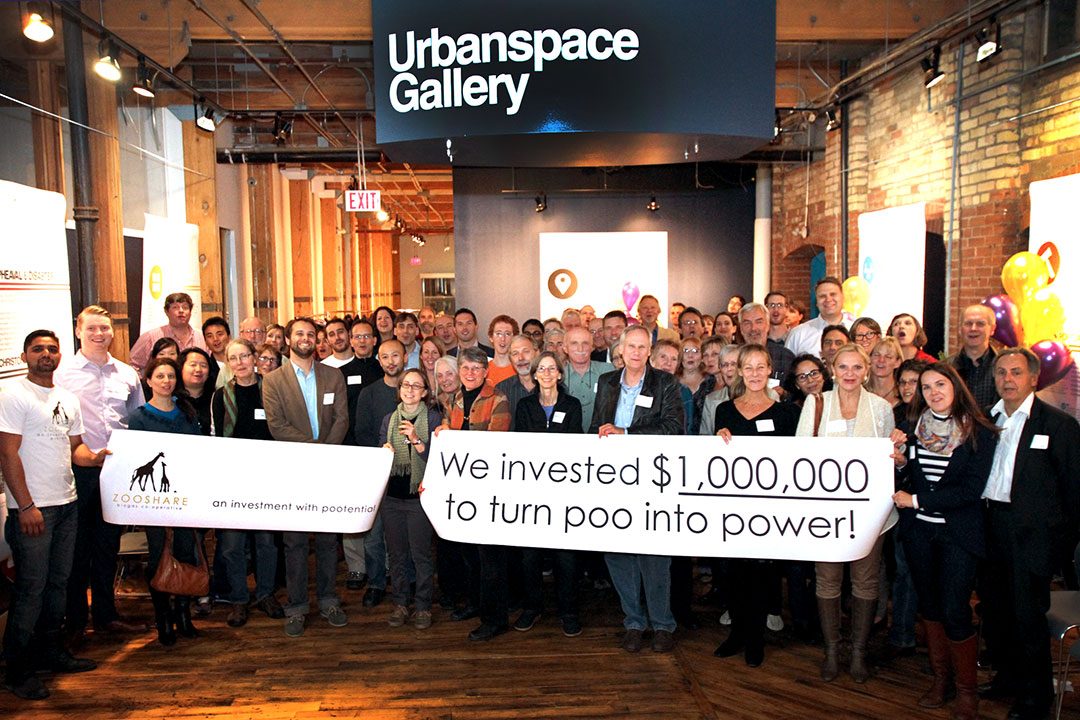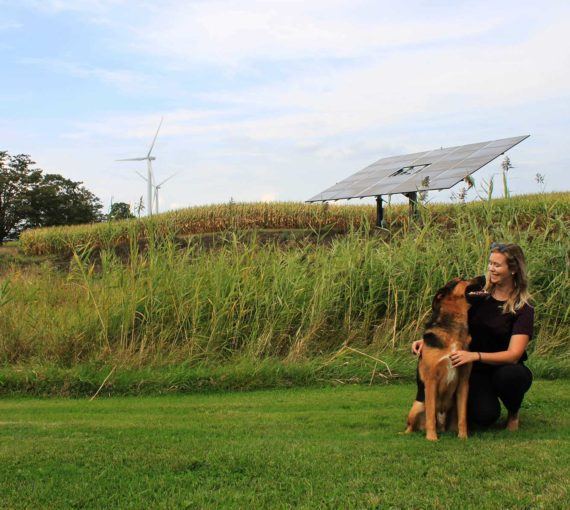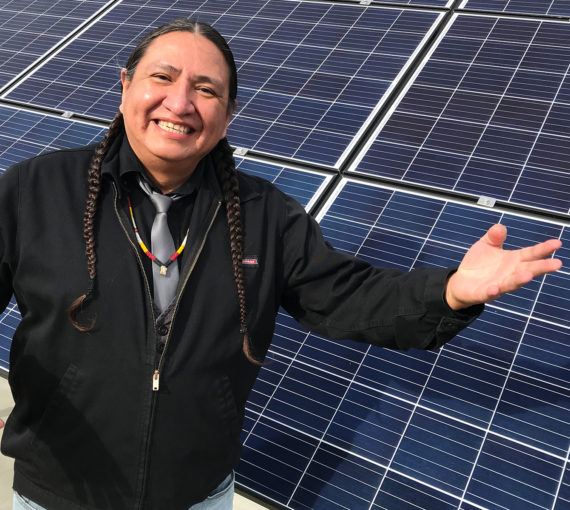
Daniel Bida is excited to open ZooShare in May 2019—Canada's only co-op owned and financed biogas facility. (Photo: ZooShare Biogas Co-operative)
“What we’re doing is different and new,” says Daniel Bida, executive director of Toronto’s ZooShare. “There aren’t other co-op owned and financed biogas facilities in Canada.”
Bida says ZooShare — which opens in May 2019 — will process animal poo and commercially produced organics in a digester to make biogas that’s burned to produce heat and electricity.
It’s an idea the McMaster University–trained financial analyst, who sports a full beard and optimistic smile, hatched some time ago. Inspired by the city’s wind-turbine co-op, Wind Share, he assembled a group of engineers and began talks with the Toronto Zoo in 2010.
The community-financing model — in which members purchased five- to seven-year bonds paying five to seven per cent — brings risk for the developer. “Typically, with these projects you have some of your money at the beginning,” Bida tells me. “But we went ahead with virtually nothing in the bank.”
Over time, the bond offering raised more than $4 million, an encouraging sign that investors see value in innovative green energy projects.
ZooShare is partly an answer to the problem of energy production, but it’s also a response to food waste.
For every tonne of organics that goes into our facility rather than a landfill there’s 1.39 tonnes of C02-equivalent reduction.
Daniel Bida
Paul Hawken’s major new book, Drawdown, says wasted food is responsible for over four billion tons of GHG emissions a year globally. Hawken ranks food waste reduction as the third most effective tool — out of 100 — for tackling climate change.
Unwanted, spoiled and packaged food is usually sent to landfills, where it generates methane, a potent greenhouse gas. By contrast, ZooShare captures the methane and, through combustion, destroys it.
“For every tonne of organics that goes into our facility rather than a landfill there’s 1.39 tonnes of C02-equivalent reduction,” Bida says.

Eight years in the making, ZooShare is a profitable solution for Toronto's clean energy future. (Photo: ZooShare Biogas Co-operative)

ZooShare has attracted many investors: its bond offering raised more than $4 million. (Photo: ZooShare Biogas Co-operative)
The digestate, Bida says, is “ideal for growing corn, among other crops. There’s lots of nitrogen in it and it’s more effective than manure as a fertilizer.”
I ask Bida whether grassroots biogas could be produced in communities across the country, or only those with a zoo. He says that, while a zoo’s involvement can boost a project’s profile, it’s not essential.
“As long as you have a location in your town and a public that wants to invest, you can do this,” he explains. “Our community ownership model is replicable, and we can share our experience with other folks.”
Why does Bida focus on biogas as opposed to other renewables? “I’ve always been interested in how we deal with waste,” he says.
There’s also a part of him that’s found ZooShare’s arduous eight-year journey gratifying.
“I wanted to take the hard path — wanted to start my own business — and solar seemed too easy!”
Renewable energy is empowering communities across the country. Charged Up is the story of you — of all of us — on a mission for a cleaner, healthier, charged-up Canada.



